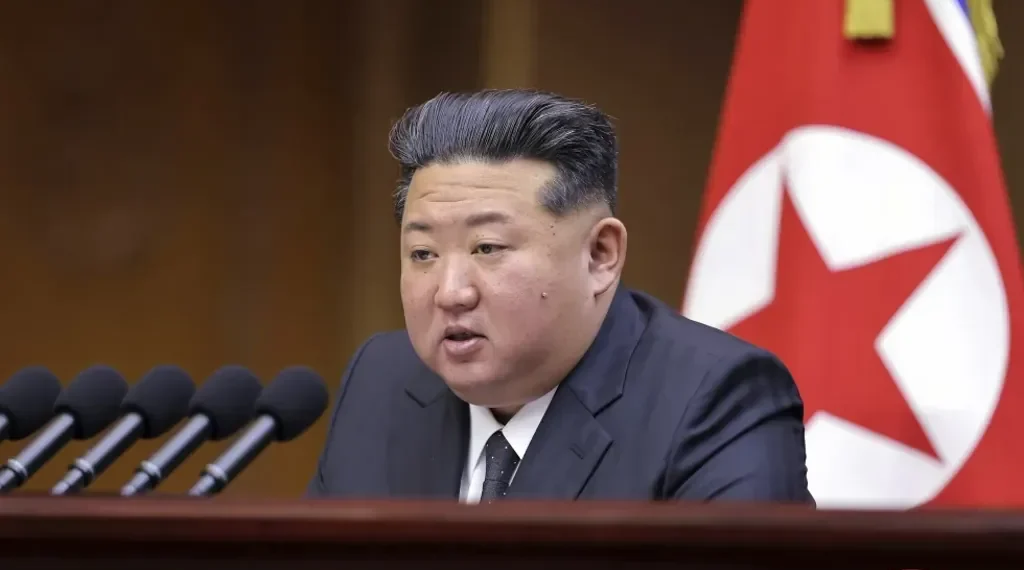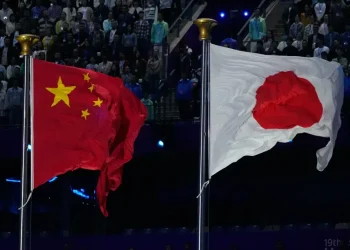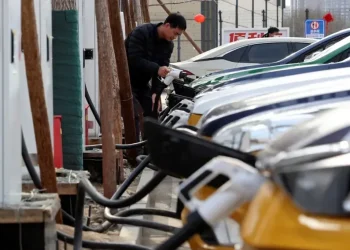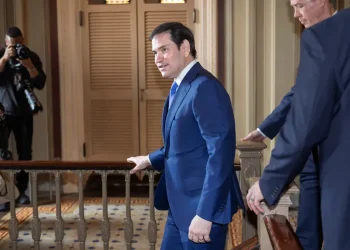Kim Jong Un Says He Has “Good Memories” of Trump, Demands U.S. Drop Denuclearization Condition
Published: September 22, 2025, 15:30 EDT
North Korean leader Kim Jong Un has said he still holds “good memories” of former U.S. President Donald Trump, while urging Washington to abandon its demand that Pyongyang give up its nuclear weapons before resuming talks. In a speech to the country’s legislature, Kim reiterated that his nuclear arsenal is not up for negotiation, framing it as essential for regime survival. His remarks come as tensions on the Korean Peninsula remain high and diplomatic channels remain frozen.
Kim’s Message to the U.S.
Speaking before the Supreme People’s Assembly on Sunday, Kim emphasized that the United States must shift its approach if dialogue is to resume. According to state media reports, he dismissed denuclearization as a precondition for talks, describing it as a “delusional obsession.”
Kim stated that there is “no reason not to” restart discussions with Washington if the nuclear issue is taken off the table. He underscored that past experiences have convinced him that surrendering nuclear weapons leaves nations vulnerable, a point he linked to global examples of countries that dismantled their arsenals only to face military intervention or regime change.
Strained Inter-Korean Relations
While extending a conditional opening to the U.S., Kim ruled out any return to engagement with South Korea. He accused Seoul of acting merely as a facilitator for American interests and confirmed that inter-Korean dialogue remains off the table.
Relations between the two Koreas collapsed following the failed Hanoi summit in 2019, when negotiations between Trump and Kim broke down over sanctions relief. Since then, Pyongyang has suspended nearly all cooperation with Seoul and accelerated its weapons program.
South Korean President Lee Jae Myung departed for New York on Sunday to attend the United Nations General Assembly, where he is expected to highlight nuclear tensions and call on Pyongyang to return to talks.
Trump’s Possible Return to the Region
Adding to speculation, former President Trump is scheduled to visit South Korea next month for the Asia-Pacific Economic Cooperation (APEC) summit. Media reports suggest the possibility of a symbolic meeting between Trump and Kim at the inter-Korean border, similar to their 2019 encounter.
However, analysts caution that any renewed contact would face the same obstacles that derailed earlier efforts, particularly North Korea’s refusal to negotiate on denuclearization. Trump previously held three meetings with Kim, which raised hopes but ultimately failed to deliver a breakthrough.
Nuclear Weapons as Regime Insurance
In his address, Kim reaffirmed that North Korea’s nuclear arsenal is non-negotiable. He portrayed nuclear weapons as the ultimate guarantee of security and continuity for his regime.
“The world already knows well what the United States does after forcing other countries to give up their nuclear weapons and disarm,” Kim said, as quoted by state media. He declared that Pyongyang “will never lay down” its arsenal, ruling out talks that involve trading nuclear concessions for sanctions relief.
Independent analysts argue that Kim views nuclear capabilities not only as a deterrent but also as leverage to pressure Washington into recognizing North Korea as a nuclear state and offering economic concessions.
Expanding Weapons Program
In recent years, North Korea has ramped up missile testing, unveiling systems designed to strike both U.S. allies in Asia and potentially the U.S. mainland. These demonstrations, experts note, are part of a broader strategy to shift negotiations toward arms control rather than disarmament.
By showcasing a diverse arsenal, Pyongyang seeks to underscore the futility of expecting unilateral denuclearization. This approach, analysts say, is intended to bring the United States to the table on terms more favorable to North Korea.
Aligning with Russia and China
Beyond the U.S., Kim is deepening ties with Moscow and Beijing as part of a strategy to offset sanctions and challenge U.S. influence.
North Korea has supplied Russia with military personnel and equipment in support of President Vladimir Putin’s war in Ukraine, according to Western intelligence assessments. Earlier this month, Kim traveled to Beijing, appearing alongside Putin and Chinese President Xi Jinping during a large-scale military parade.
Experts say such moves are aimed at strengthening North Korea’s bargaining position ahead of any potential dialogue with Washington. By aligning with Russia and China, Pyongyang signals that it is not isolated and can leverage these partnerships to resist Western pressure.
Concerns in South Korea
Seoul remains wary that it could be sidelined in future negotiations if Pyongyang insists on dealing directly with Washington. South Korean officials have voiced concern that renewed U.S.-North Korea contacts could reduce Seoul’s influence over the peninsula’s security landscape.
These anxieties grew after Kim last year formally abandoned North Korea’s longstanding goal of peaceful unification with the South. He ordered changes to the North’s constitution declaring South Korea a permanent enemy, further dimming hopes for reconciliation.
Outlook for Diplomacy
Kim’s latest statements reinforce a pattern that has defined North Korea’s foreign policy in recent years: openness to dialogue with the United States, but only on terms that preserve its nuclear program.
For Washington and Seoul, the challenge remains how to address North Korea’s growing arsenal while avoiding escalation. With Trump’s upcoming visit and continued global debate at the United Nations, questions loom over whether the stalemate can give way to renewed diplomacy — or whether the peninsula will remain locked in heightened confrontation.
This article was rewritten by JournosNews.com based on verified reporting from trusted sources. The content has been independently reviewed, fact-checked, and edited for accuracy, neutrality, tone, and global readability in accordance with Google News and AdSense standards.
All opinions, quotes, or statements from contributors, experts, or sourced organizations do not necessarily reflect the views of JournosNews.com. JournosNews.com maintains full editorial independence from any external funders, sponsors, or organizations.
Stay informed with JournosNews.com — your trusted source for verified global reporting and in-depth analysis. Follow us on Google News, BlueSky, and X for real-time updates.














